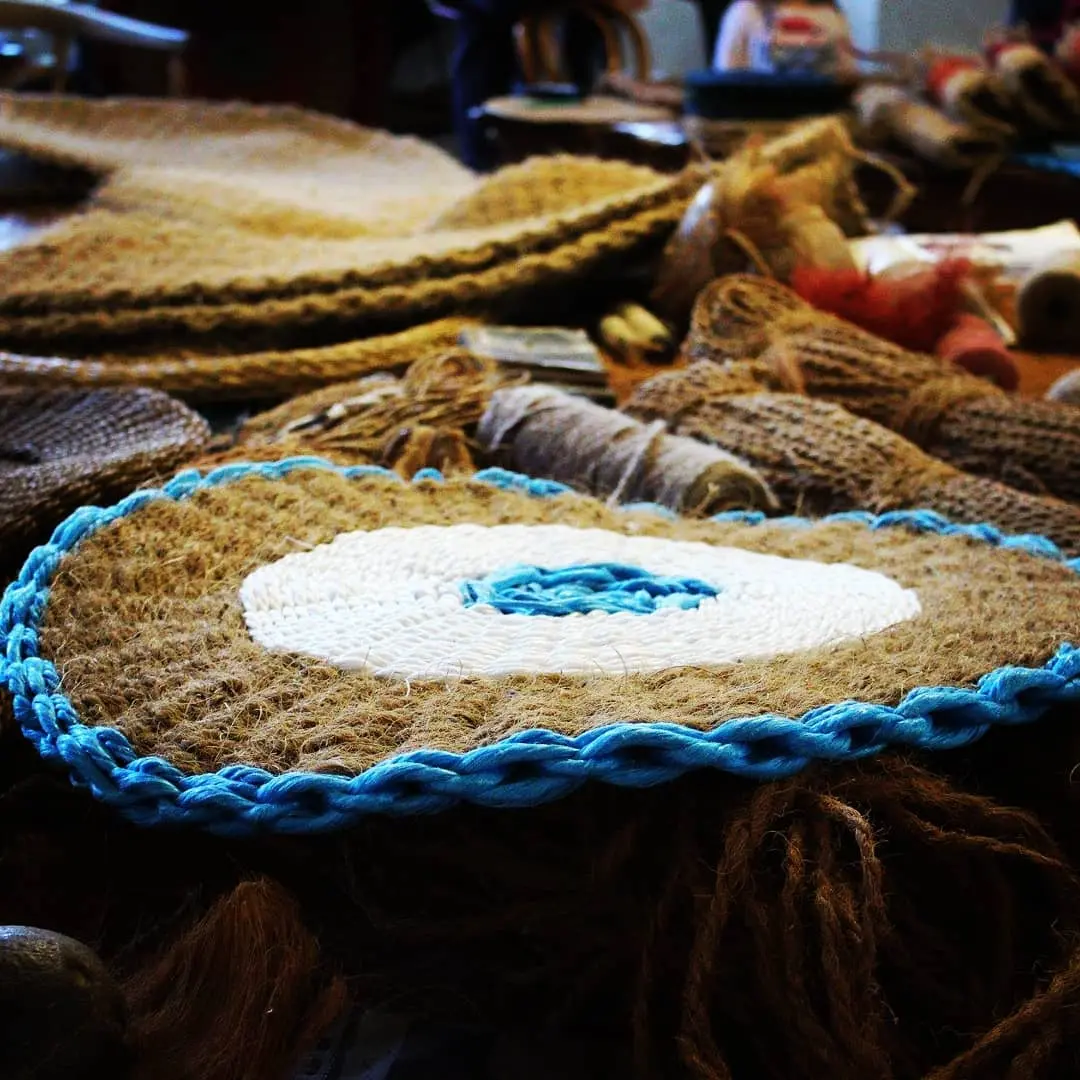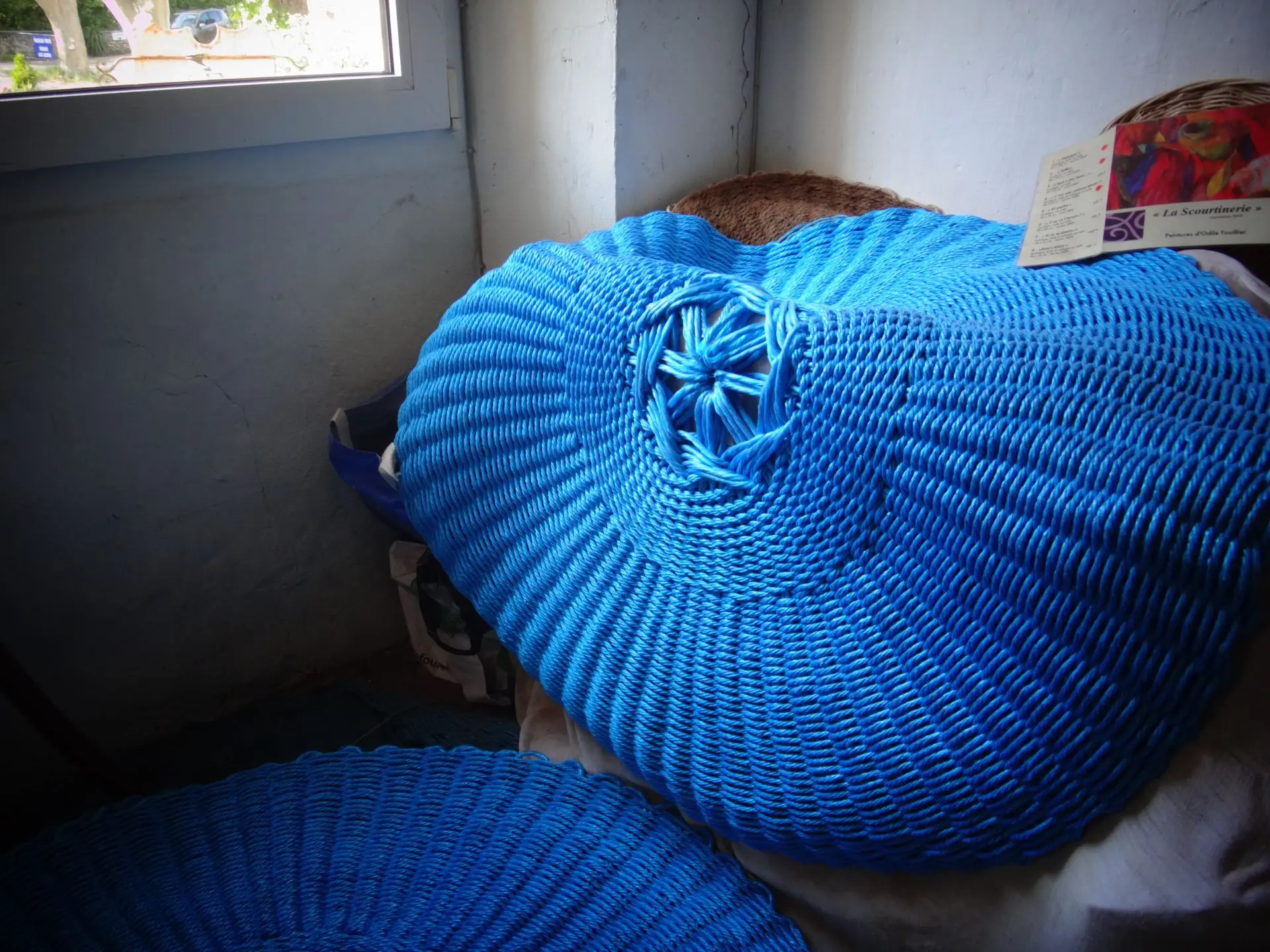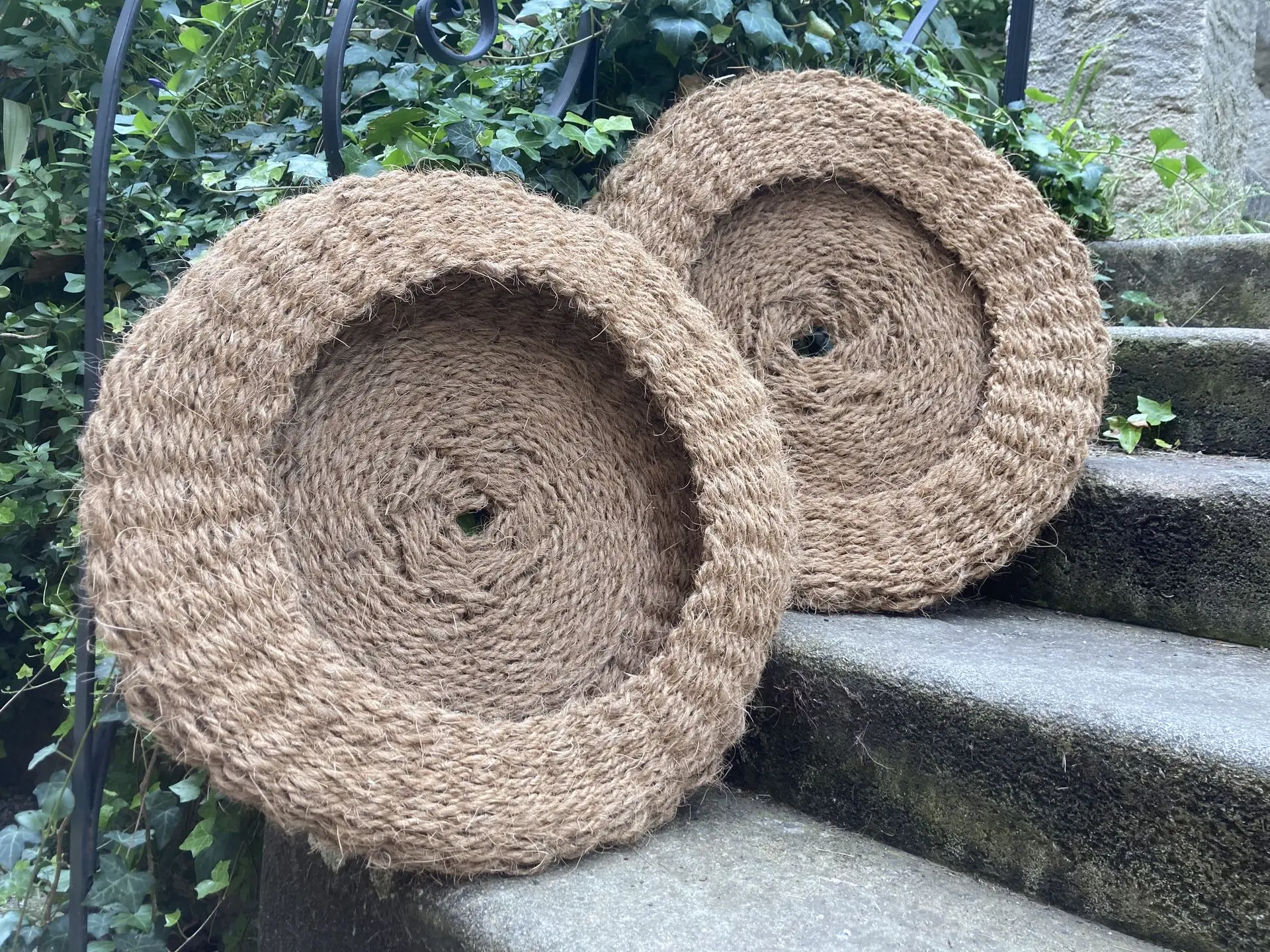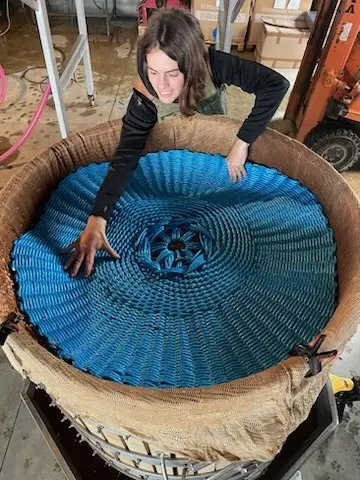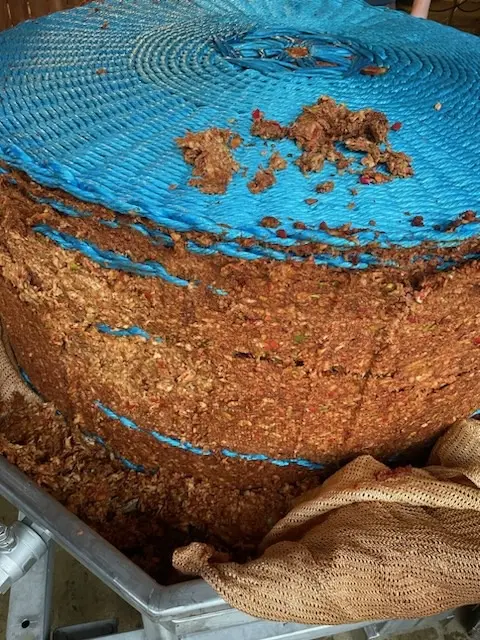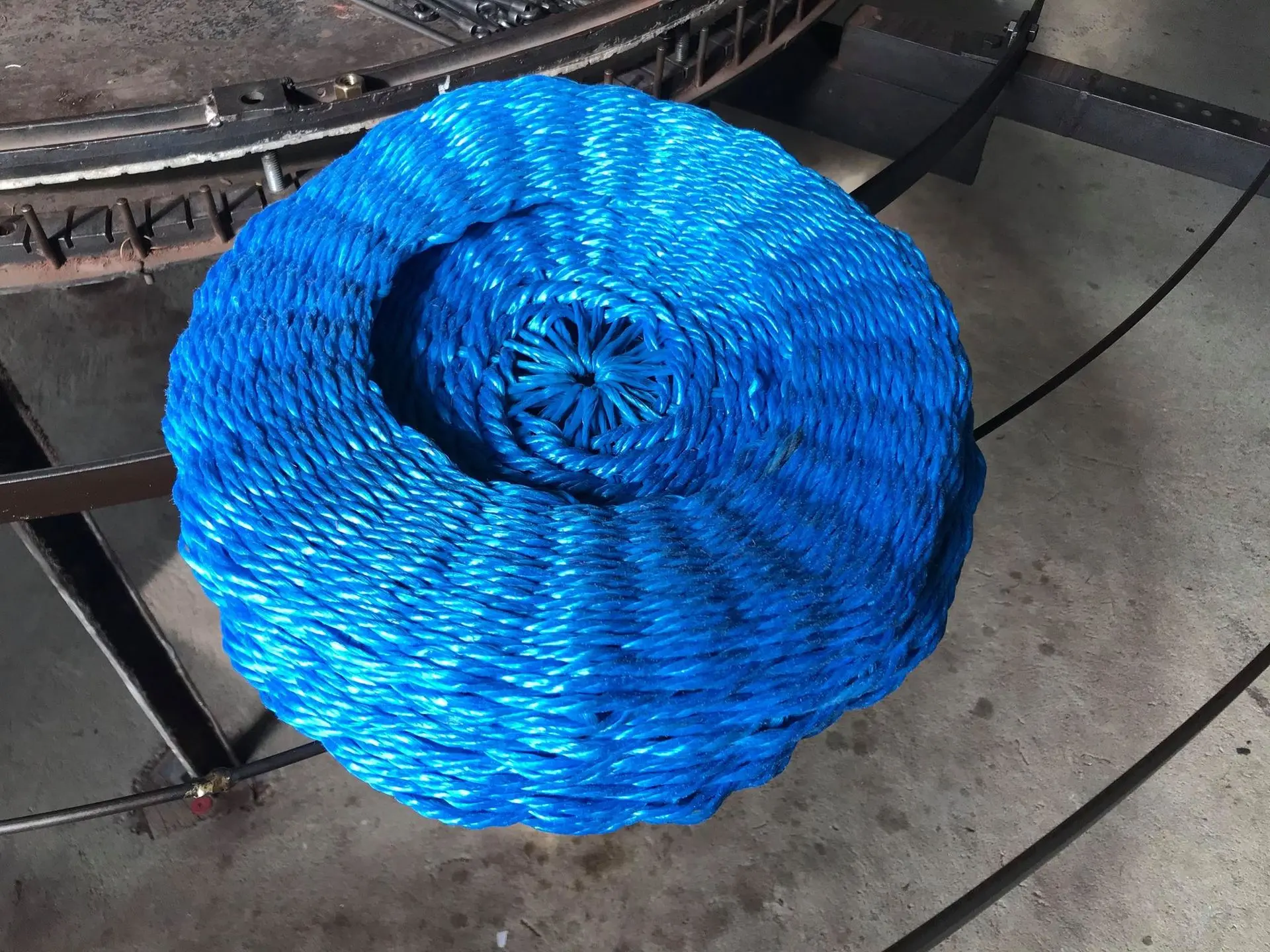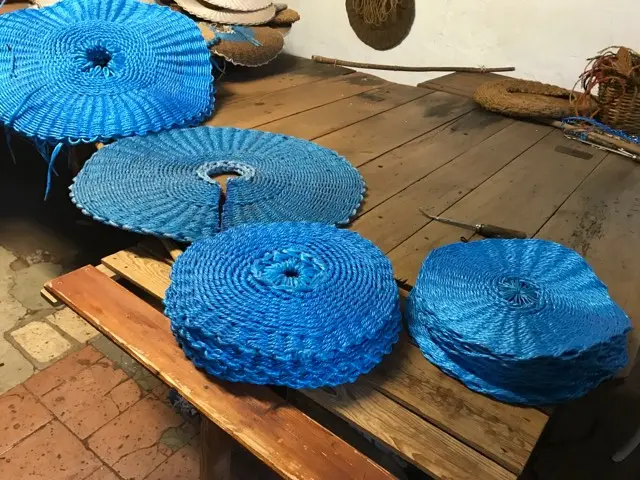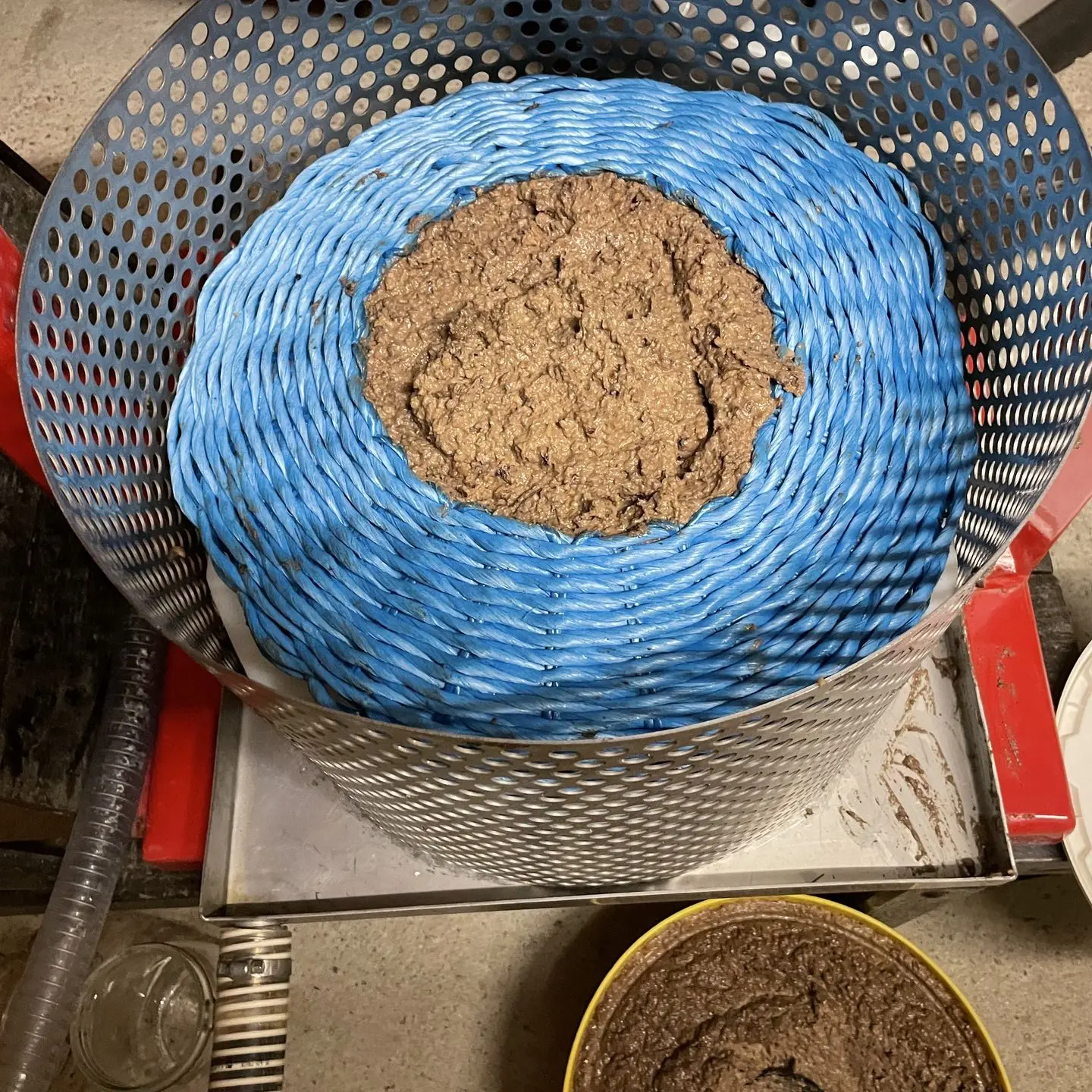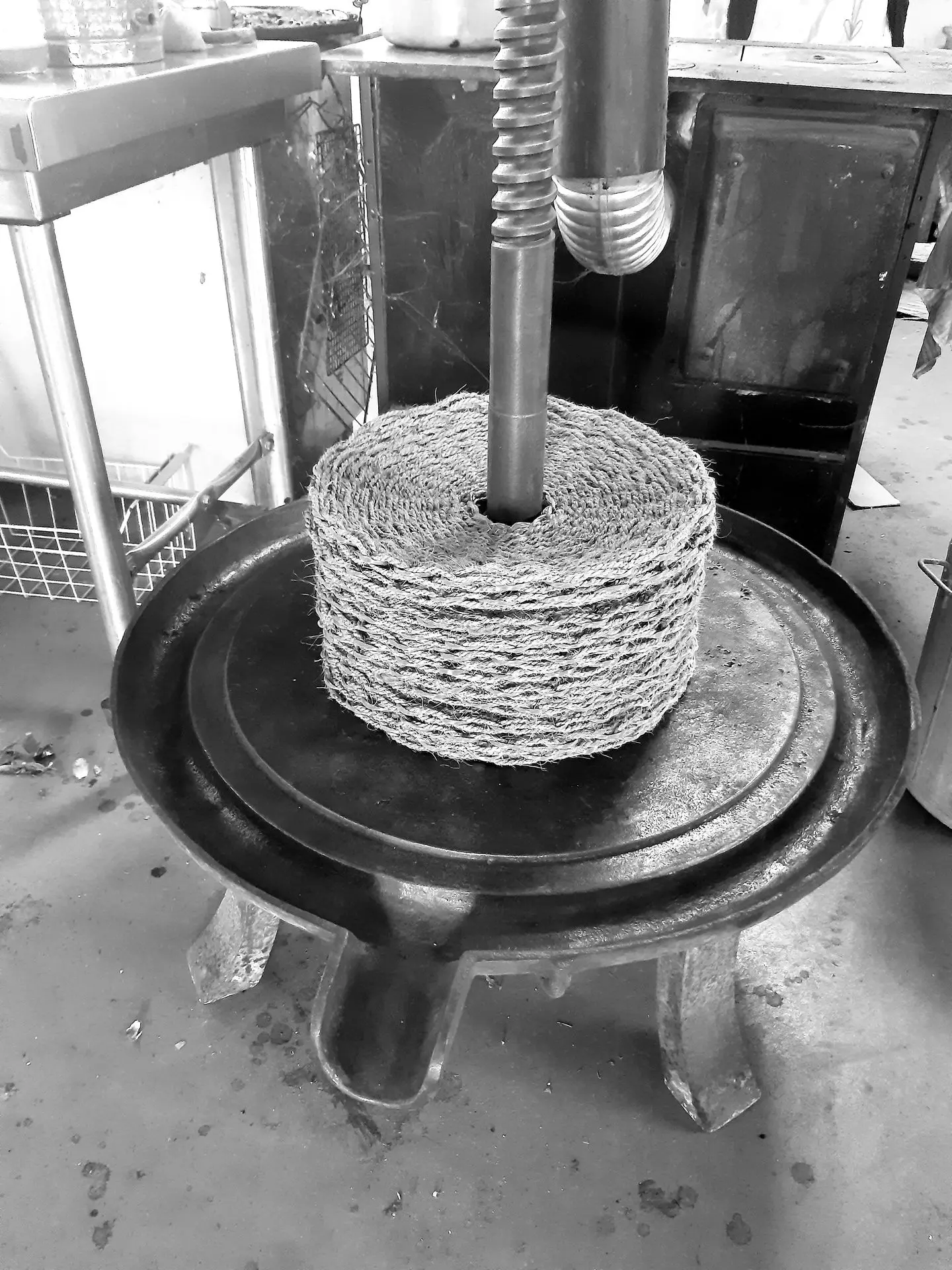Scourtin Filters
The term scourtin comes from the Provençal word "escourtin," referring to the circular filter traditionally used in olive oil extraction.
Once filled with olive paste, the pouch is placed under a press. The pressure causes olive oil to flow through the scourtin, leaving the solid residue (pomace) inside.
At the Scourtinerie, we weave scourtin filters mainly for wine production but also for cider and olive oil.
Our filters—flat, split, or pouch-style—are crafted in coconut fiber, food-grade polypropylene, or a blend of both, tailored to meet the needs of every press.
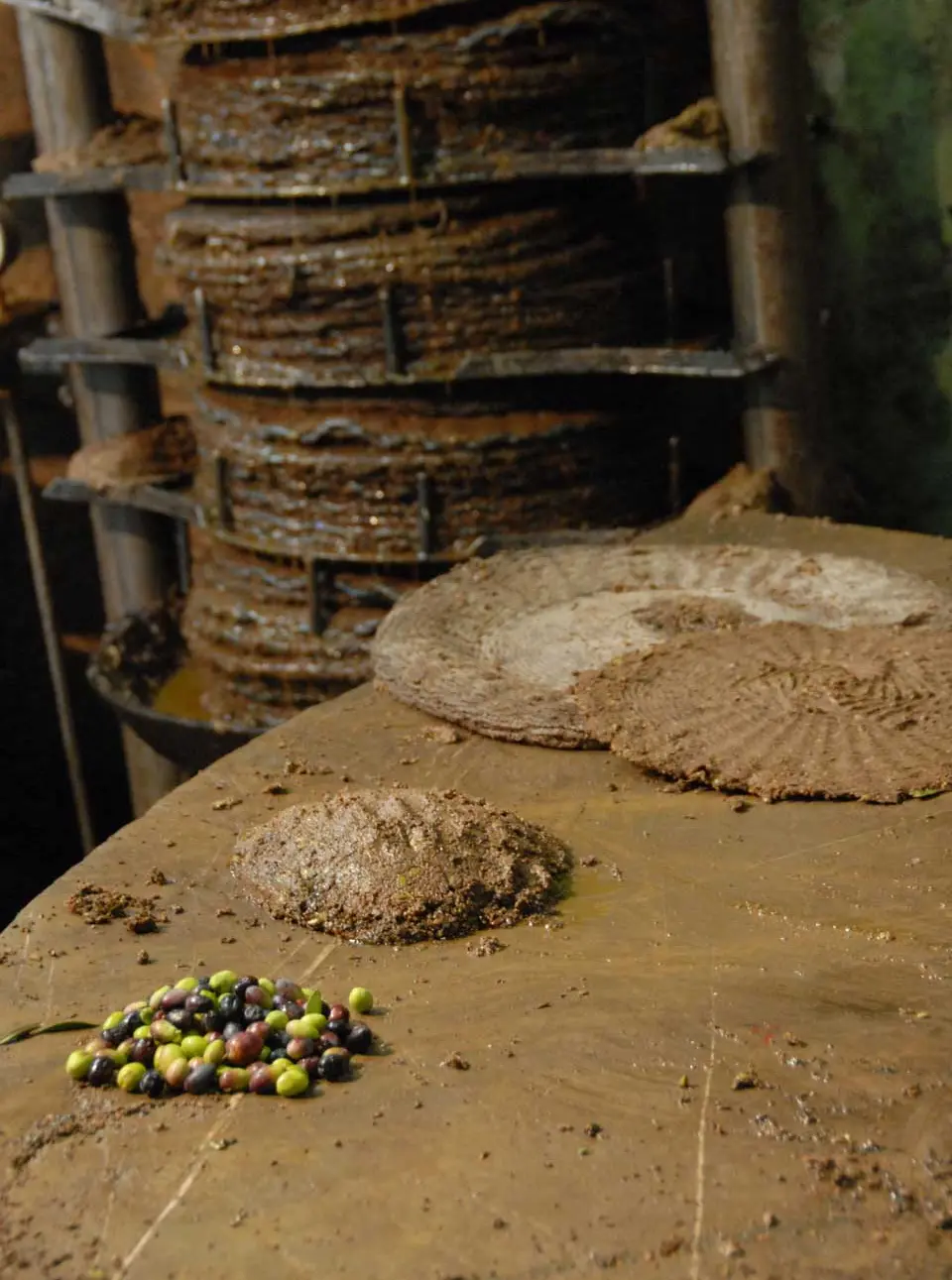
How to Choose the Right Scourtin for Your Press ?
For presses with a central screw, choose a scourtin with a central hole and specify the screw diameter when placing your order.
Flat scourtins areideal for olive, fruit, apple juice/cider, and wine presses, effectively draining juice from the center to the edges during pressing.
Flat scourtins without holes: Designed for plate presses.
Flat scourtins with holes: Ideal for traditional screw presses..
Split scourtins: Simplify installation on presses with a central screw.
Pouch scourtins: Primarily used for pressing olive paste. They are also suited for cider or olive oil filtration in super presses with predetermined dimensions.
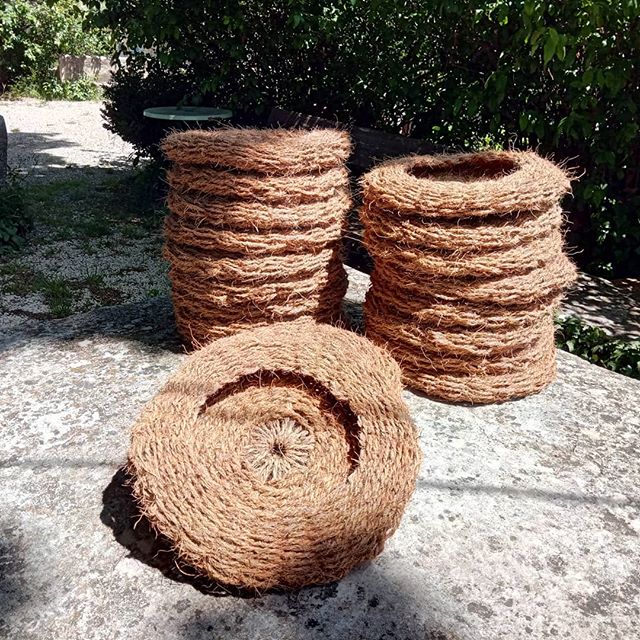
Traditional Filters
Made of 100% coconut fiber, these scourtins are rot-proof and entirely natural.
Invented in 1892 by Ferdinand Fert, who patented the first scourtin weaving machine and introduced coconut fiber into production.
Available in 4 pouch sizes and diameters ranging from 25 cm to 250 cm for flat filters.
Today, coconut pouch scourtins are often repurposed for decorative use, as table baskets or hanging lampshades.
BOUTIQUE EN LIGNE
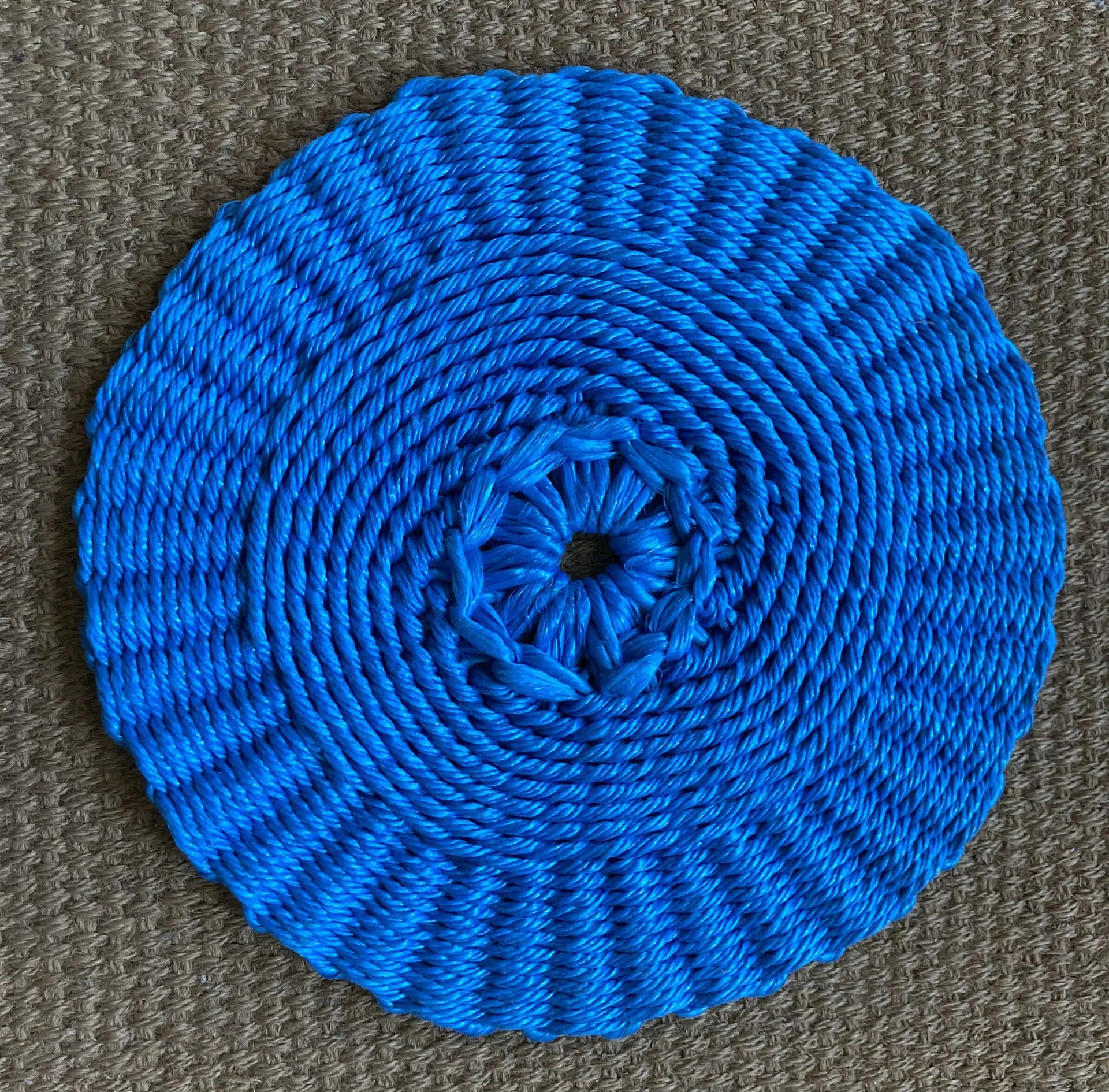
Modern Filters
Made of food-grade polypropylene, offering enhanced durability and ease of cleaning.
Pouch-style filters are used for traditional olive oil filtration.
Flat filters are commonly used for wine, cider, walnut oil, and other juices.
BOUTIQUE EN LIGNE
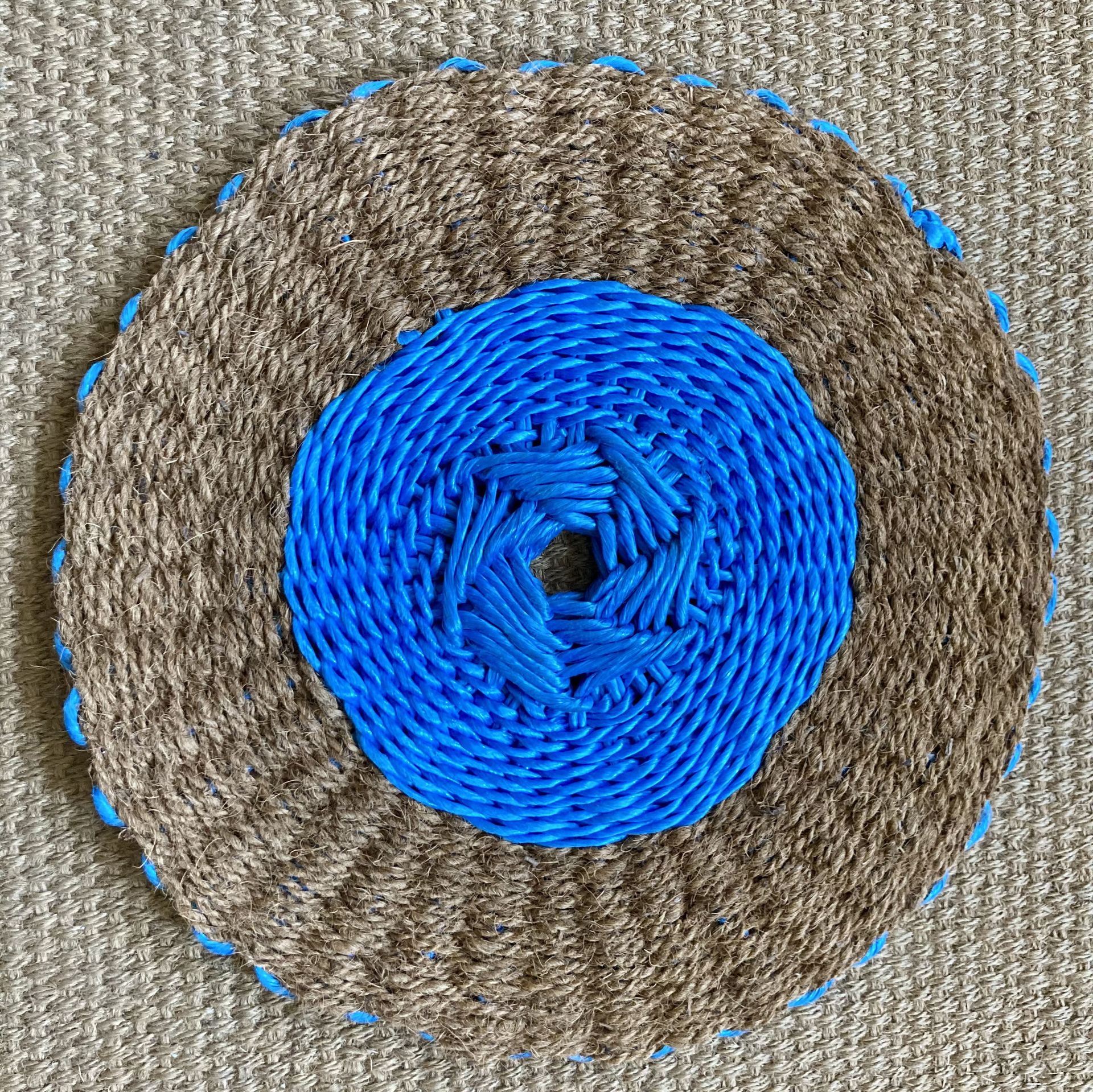
Mixed Filters
A blend of tradition and innovation, these filters combine polypropylene chains for durability with a coconut fiber weave for effective filtration.
BOUTIQUE EN LIGNE
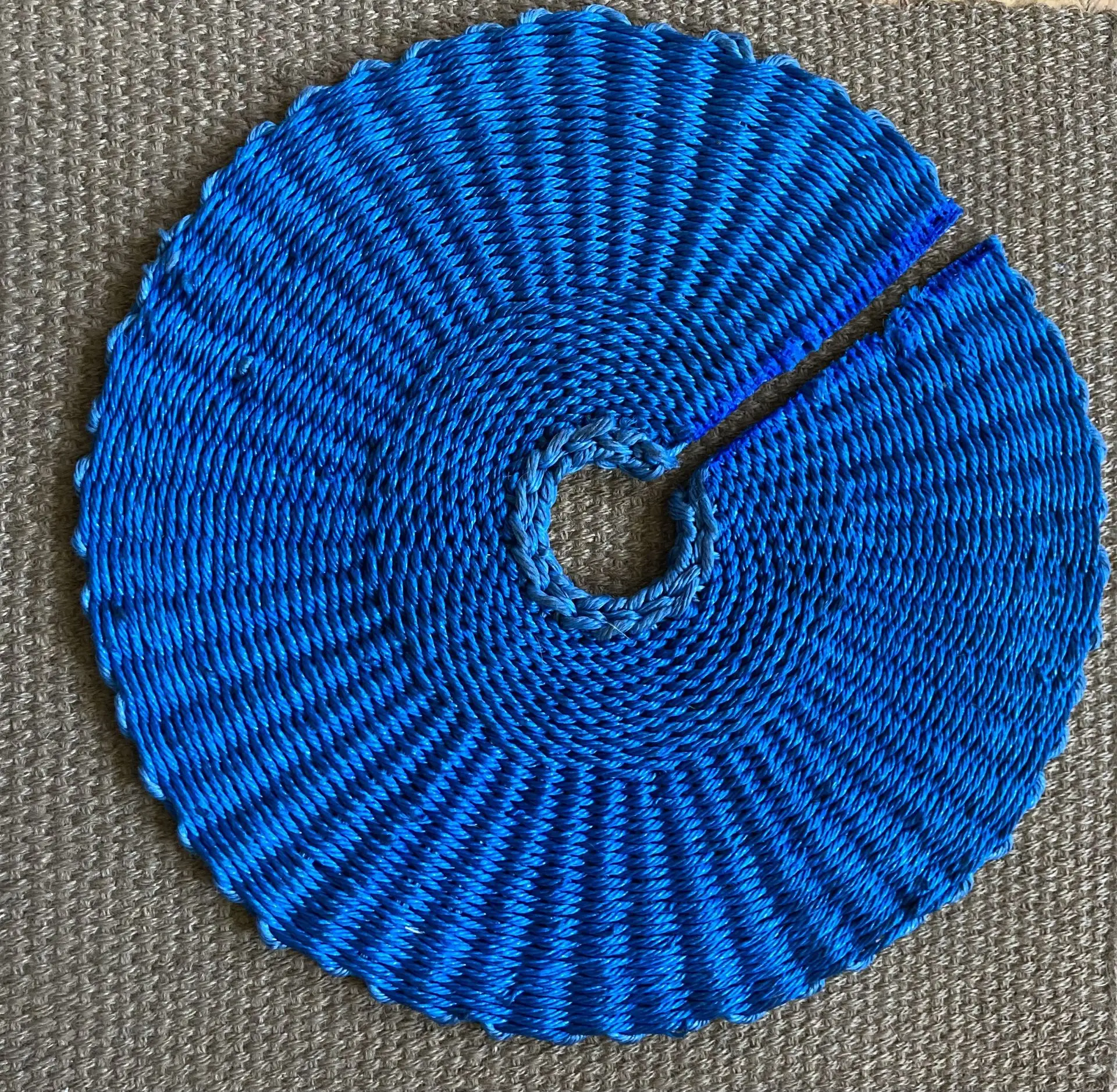
The Split Scourtin
Whether Italian-made or crafted in Nyons, split filters are always made of polypropylene or nylon. Each one is hand-split on-site in Nyons.
BOUTIQUE EN LIGNE
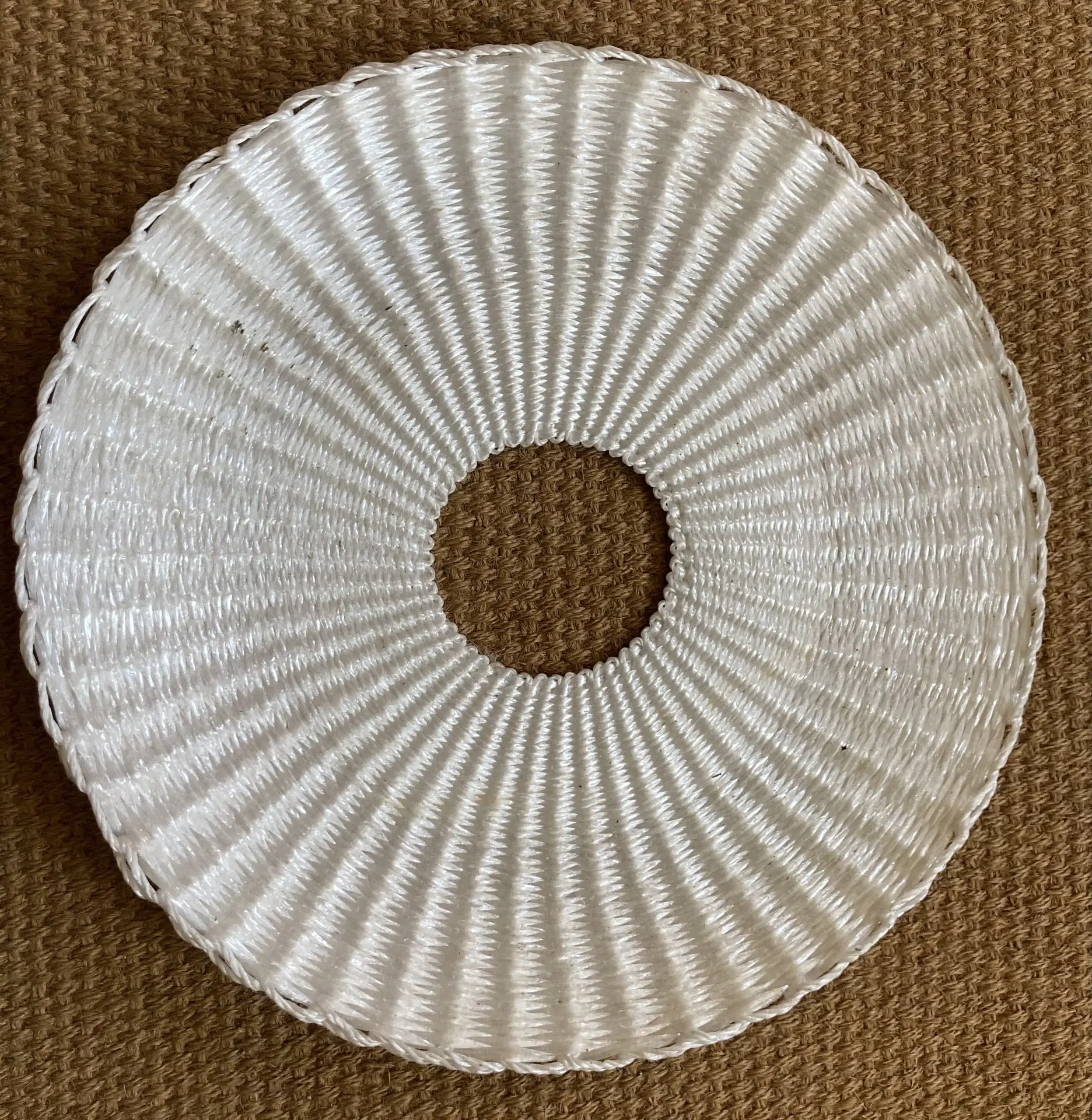
Italian Filters
Nylon filters designed for super presses used in olive oil, cider, and wine production.
These filters are sourced from Italy and are available in 4 sizes, featuring a central hole measuring 13 cm to 16 cm in diameter.
BOUTIQUE EN LIGNE
Photo galery

FRENCH COMPANY

LIVING HERITAGE COMPANY

ANCESTRAL KNOW-HOW

NATURAL AND SUSTAINABLE RESOURCE

FRENCH COMPANY

LIVING HERITAGE COMPANY

ANCESTRAL KNOW-HOW

NATURAL AND SUSTAINABLE RESOURCE
